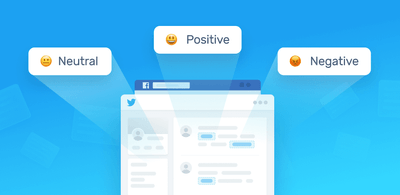15 of The Best Sentiment Analysis Tools
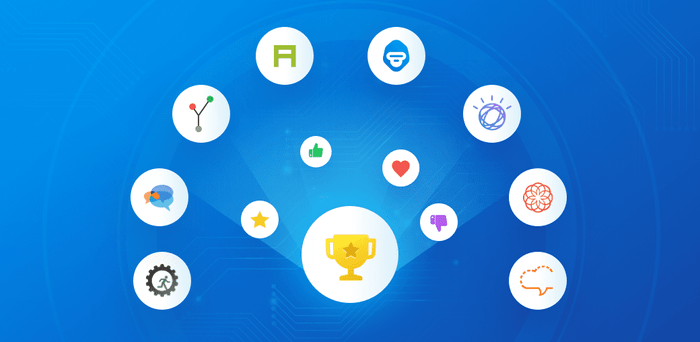
Monitoring customer sentiment on social media has become a top priority for companies that want to create customer-centric experiences and improve their brand marketing strategy.
That’s why more and more businesses are turning towards easy-to-implement and powerful sentiment analysis tools.
Start using AI sentiment analysis tools
In this run down of the best AI sentiment analysis tools, we’ll introduce you to the most powerful solutions for monitoring customer sentiment across your social media channels. First, though, let’s go over what a sentiment analysis tool is and what sentiment analysis can do for you.
What Is A Sentiment Analysis Tool?
A sentiment analysis tool is AI software that automatically analyzes text data to help you quickly understand how customers feel about your brand, product or service.
Sentiment analysis tools work by automatically detecting the emotion, tone, and urgency in online conversations, assigning them a positive, negative, or neutral tag, so you know which customer queries to prioritize.
There are many sentiment analysis tools available, but not all are equal.
Some are a lot easier to use than others, while some require an in-depth knowledge of data science.
Need help deciding? Read this post on building vs buying analysis software.
Benefits of Sentiment Analysis Tools
Instead of sifting through each Facebook comment or Tweet, and labeling them as positive or negative, you can harness the power of sentiment analysis to automatically sort social media data.
You can also connect sentiment analysis tools to your customer support software, allowing you to listen to the voice of the customer in real time, prioritize negative comments and, in doing so, improve brand reputation and prevent customer churn.
Discover sentiment analysis tools that connect directly with Zendesk and start automatically tagging your support tickets.
With sentiment analysis tools, you’ll be able to quantify all your unstructured data and use data visualization tools to transform text data into valuable customer insights: reveal trends and patterns over time, easily spot customer pain points, and make data-based decisions that will improve brand reputation and drive your business forward.
To automatically detect positive and negative sentiment within your data, get started with the following online sentiment analysis software.
The Best Sentiment Analysis Tools
1. MonkeyLearn
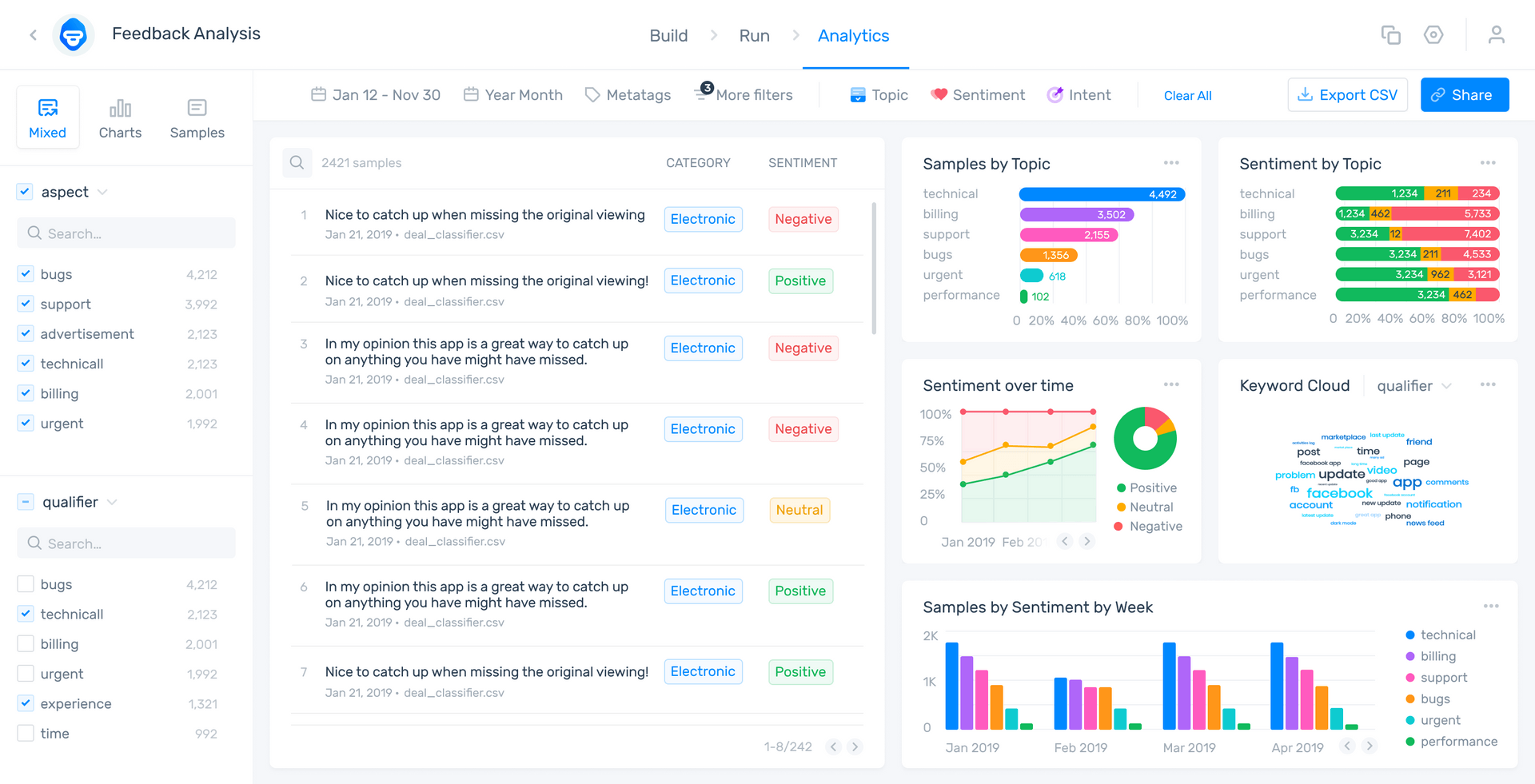
MonkeyLearn hosts a suite of text analysis tools, including a ready-to-use sentiment analysis tool, with exceptional accuracy.
MonkeyLearn’s products easily integrate with tools like Zendesk and Google Sheets. If you know how to code, you’ll be able to use MonkeyLearn API to connect sentiment analysis tools to your stack.
You might also want to build a customized sentiment analysis model without writing a single line of code. The advantage of building your own sentiment analysis tool is that it will be more accurate.
By training it using your own business data and criteria, you can teach it to recognize industry-specific language and define each level of sentiment in relation to your business.
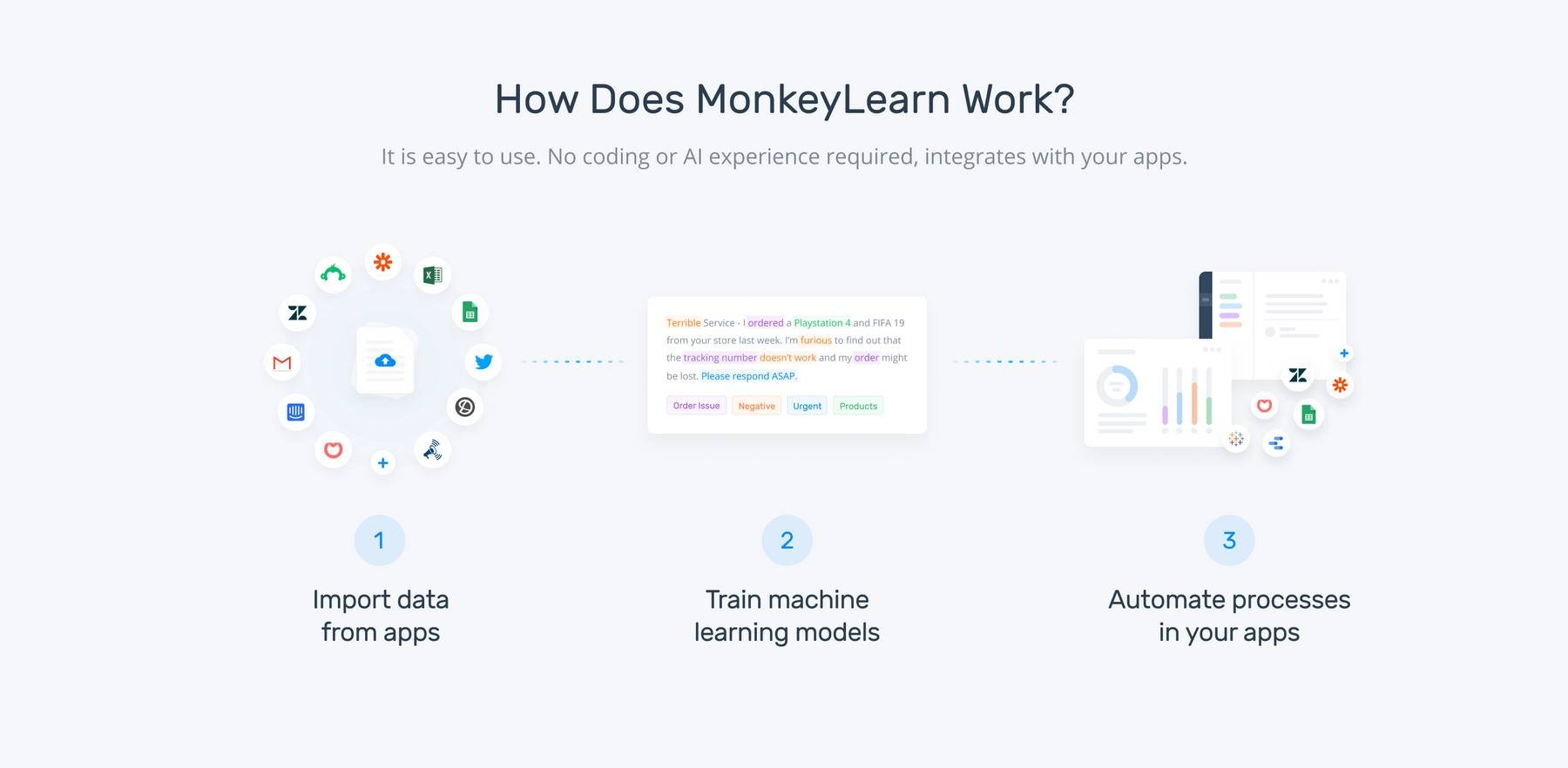
Don’t worry, building a sentiment analysis model is super easy with MonkeyLearn’s point-and-click interface: follow this tutorial on how to build a custom classifier.
Once you’ve analyzed your data for sentiment, connect your results to MonkeyLearn Studio to see your sentiment analysis results in finite detail.
Pricing: Explore pricing.
2. Lexalytics
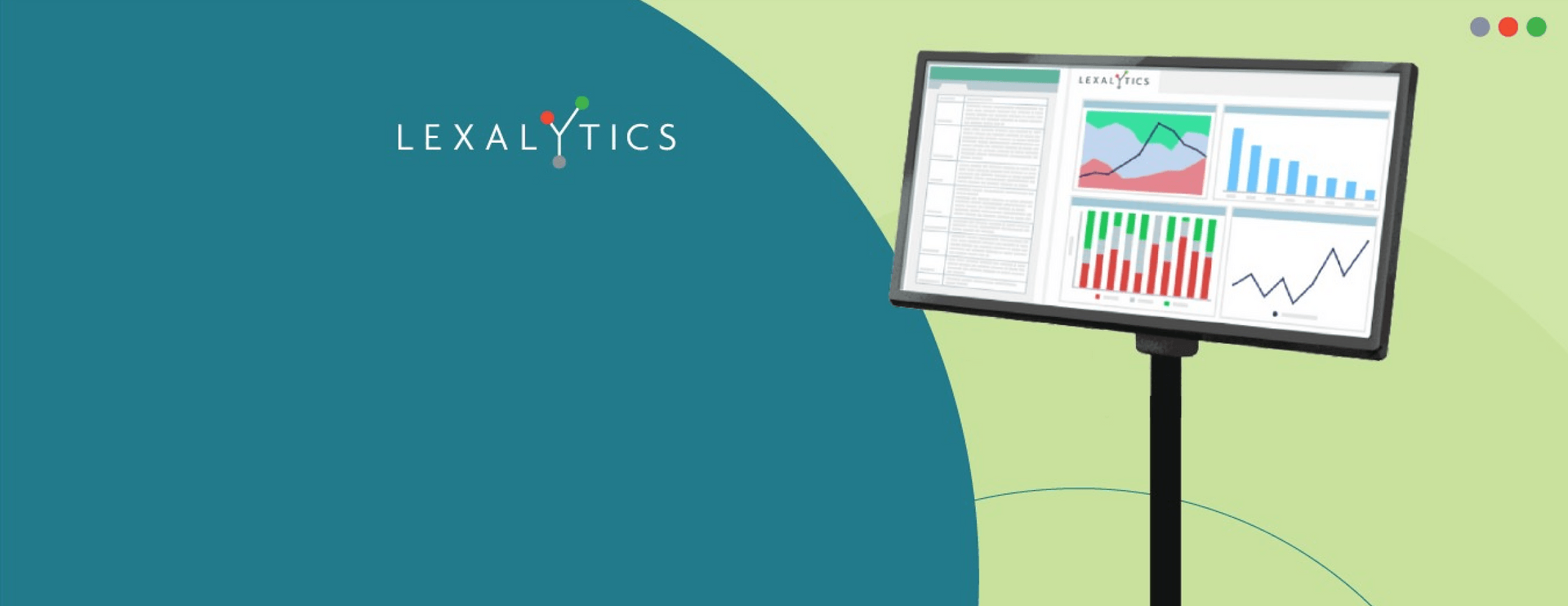
Lexalytics's Semantria API let’s you set up sentiment analysis tools in the cloud. If you’re looking for an on-premise solution, tailored towards data scientists and architects who want full access to the technology or who need on-premise deployment for security reasons, look no further than Lexalytics Salience.
Whichever infrastructure you choose, you’ll have access to the platform’s powerful NLP sentiment analysis system, which can be tweaked to your specific needs, though you’ll need a data science background to understand how the Lexalytics API works.
Once you’ve gauged the feelings and emotions behind customer feedback, you’ll be able to visualize (and store) your results in Semantria’s comprehensive business intelligence tool.
While Lexalytics provides both text analysis and data visualization, you will need to be tech-savvy to use it.
3. Brandwatch
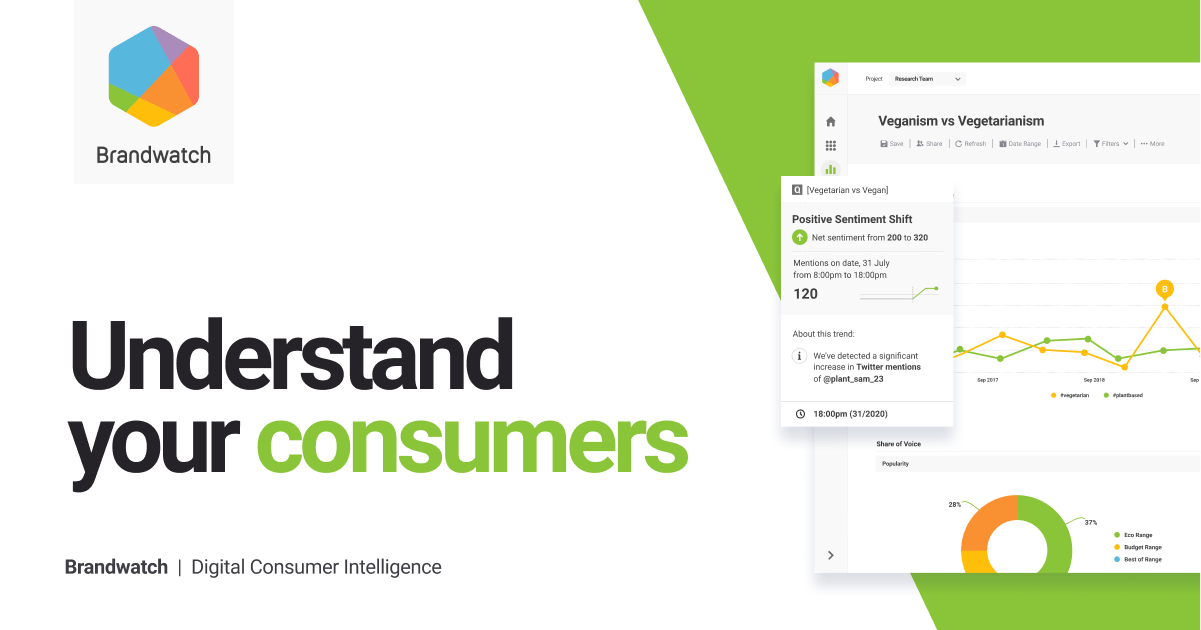
Brandwatch's was named as a leader in the 2020 Forrester Wave for social listening platforms, and the accuracy and precision of the platform’s sentiment analysis capabilities were considered above par when compared to other vendors.
Businesses use Brandwatch to monitor mentions online and understand the voice of customer, detect fluctuations in sentiment, and measure brand visibility in real time, 24/7. The self-claimed ‘consumer intelligence’ platform also provides machine learning custom classifiers, plus automatic entity disambiguation to identify topics and themes within data that has already been analyzed by sentiment.
As an added bonus, Brandwatch includes a unique “image insights" feature that lets you go beyond text data, so you can track how your logos are shared across millions of online sources and where they’re appearing.
Pricing: Book a meeting to find out more.
4. Social Searcher

Social Searcher monitors keywords, hashtags, and usernames across all social media platforms. You’ll receive a bunch of social analytics, including audience insights, popular hashtags, and social influencers.
The free version includes a sentiment analysis tool, which provides the overall sentiment of social media data on each platform and a breakdown of popular posts that have been categorized as negative and positive.
5. MeaningCloud
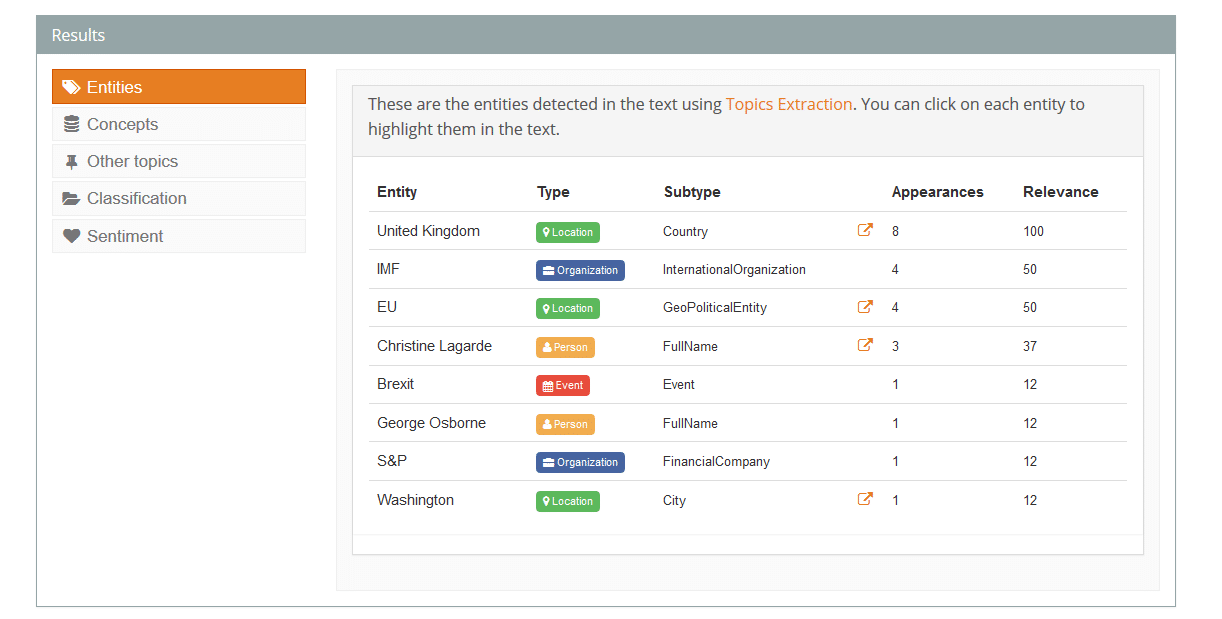
Perform multilingual sentiment analysis using MeaningCloud's Sentiment Analysis API. This online tool runs aspect-based sentiment analysis to decide whether specific topics are mentioned in a positive, negative, or neutral way.
Additionally, you can define a dictionary to include any specific vocabulary that you might use in your field.
Some of MeaningCloud’s best features are the detection of global sentiment (a general view of what the customer expressed in a certain text), identification of opinion versus fact, and spotting sentiment within each sentence of a text.
6. Talkwalker's Quick Search
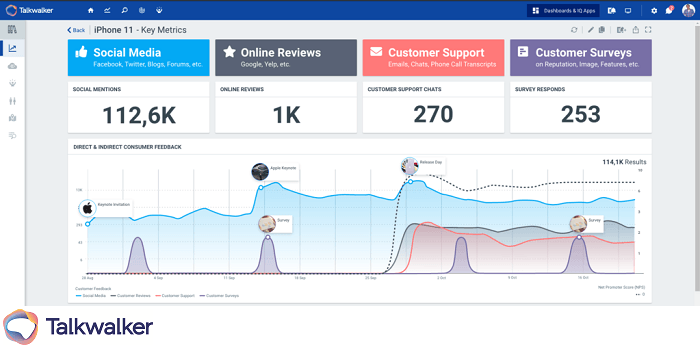
Quick search is a social media search engine from Talkwalker. This tool allows you to get insights from all your brand mentions by automatically analyzing social media communications. It's useful for evaluating campaign outcomes, getting content ideas, and discovering new trends.
Quick Search can perform sentiment analysis on your social mentions, in 25 languages! Real-time social listening lets you stay on top of every issue as it happens and helps you understand how customers feel about your brand or product.
7. Rosette

Working with Rosette's sentiment analysis tool is a breeze. You can use the API to perform sentiment analysis on social media data, as well a more fine-grained analysis. For example, the sentiment expressed by customers when they mention a specific product, company, or person.
Rosette is able to identify parts of speech by means of morphological analysis and lemmatization (the grouping of inflected word forms so they are not analyzed separately). If you’re a global company you can train Rosette’s sentiment analysis tool to identify up to 30 languages.
8. Repustate

Repustate’s sentiment analysis software can detect the sentiment of slang and emojis to determine if the sentiment behind a message is negative or positive. Repustate offers a free trial so you can try the tool to see if it really suits your needs.
Customize the API to identify one of 23 languages, and train sentiment analysis models to recognize alternative meanings of words, to gain even more accurate sentiment insights.
9. Clarabridge
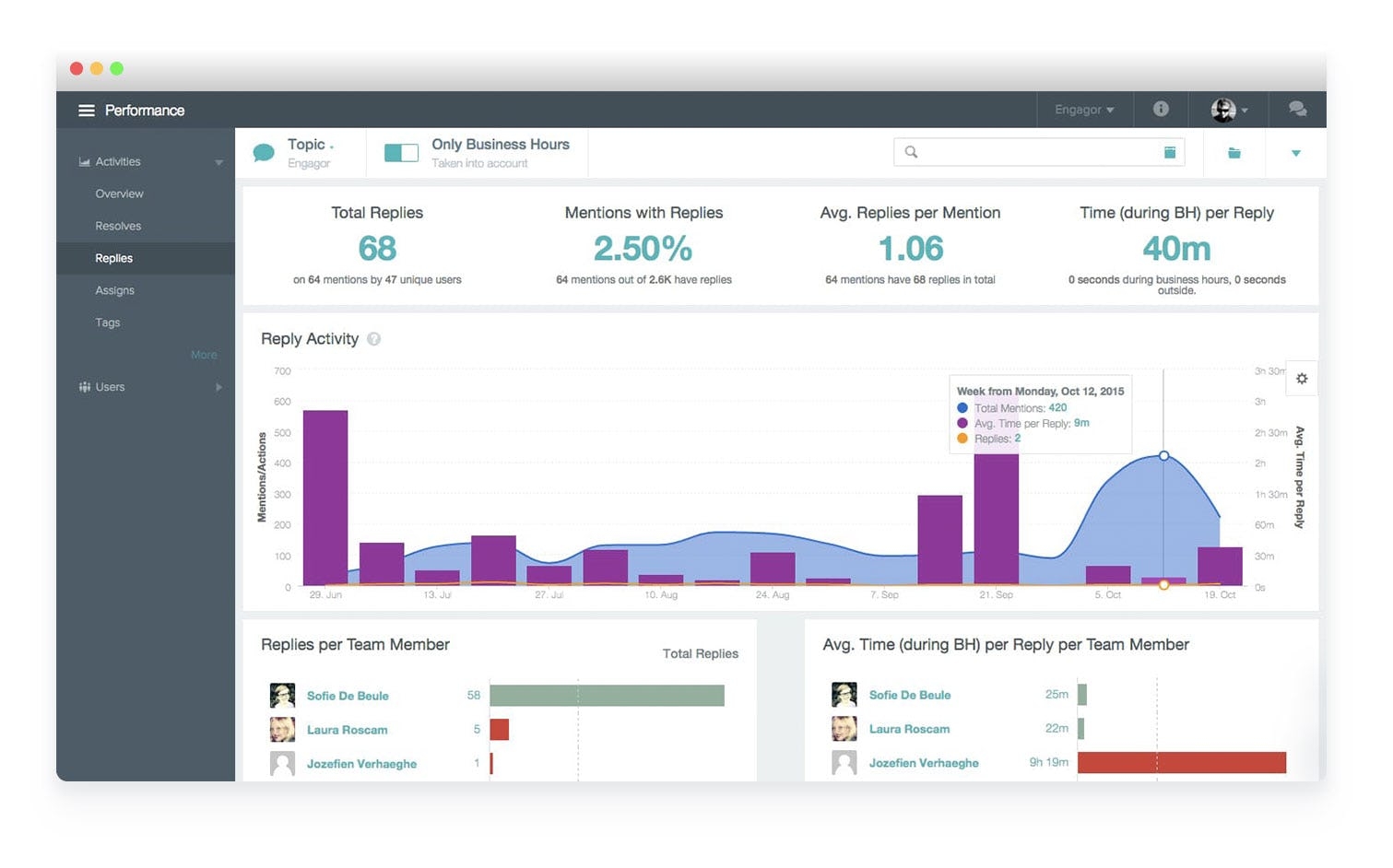
Clarabridge provides tools that deliver metrics about your customers’ feelings in all types of data: social media, emails, chats, surveys.
Clarabridge also focuses on Speech Analytics, performing sentiment analysis on audio data. This is particularly useful for teams that handle a lot of calls, such as sales and support
10. Aylien
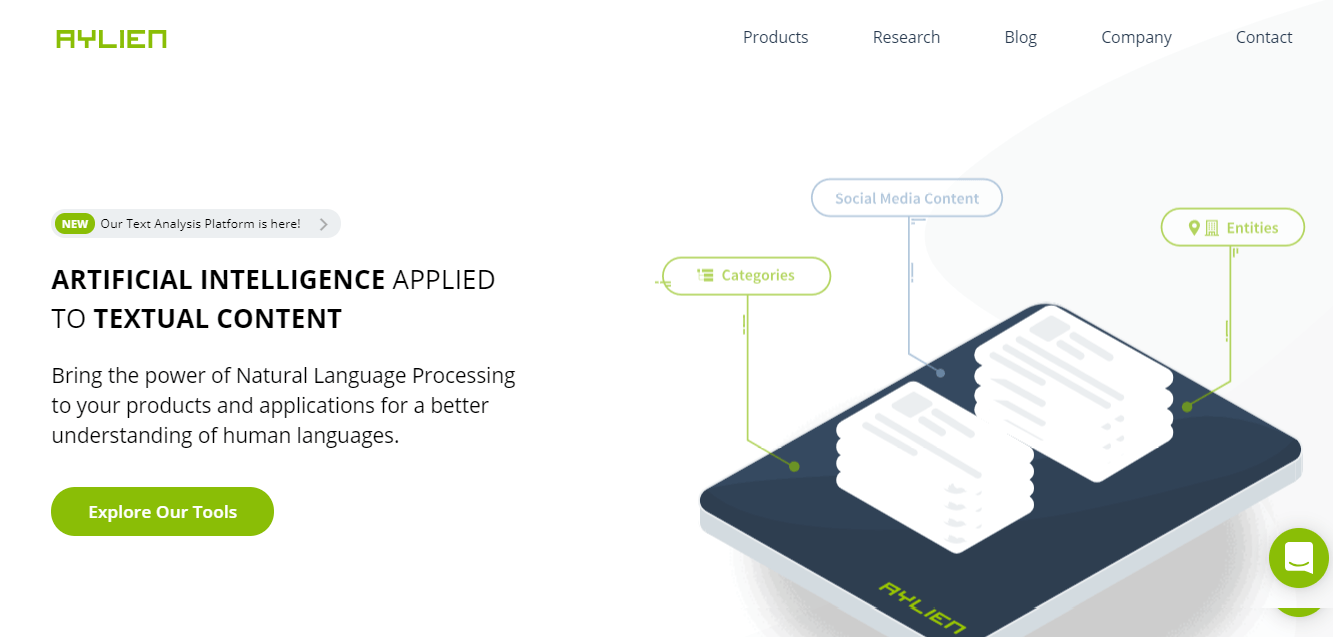
Understand the severity and impact of news events and stories in real-time with Aylien News API. Detect sentiments across news stories and dive deeper into topics with aspect-based sentiment analysis.
The text analysis platform also allows you to build your own models hassle-free, and you don’t need to know a lot about machine learning or NLP to get started.
11. Social Mention
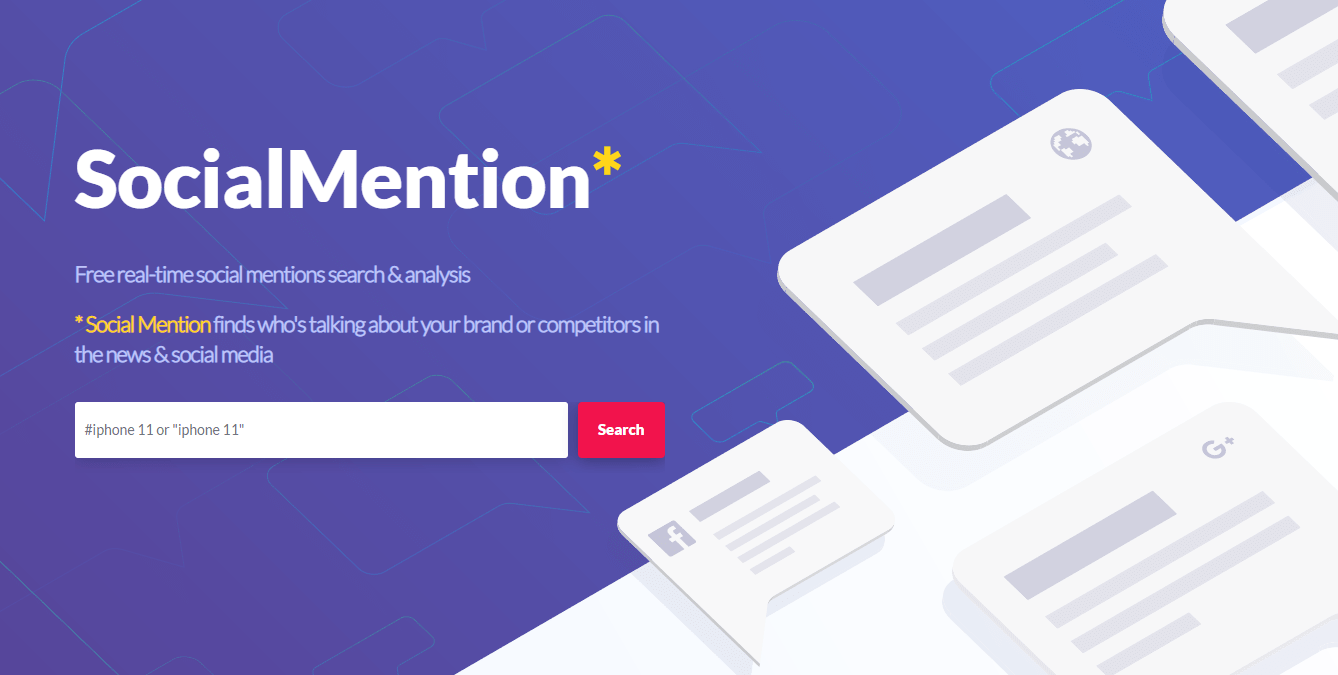
Social Mention is a free sentiment analysis tool that is extremely simple to use. Users can search for any keyword and receive a complete analysis of how that keyword is performing.
This analysis includes a summary of the overall sentiment of the keyword, the sentiment of each mention, and the amount of positive, negative, or neutral comments the keyword has.
12. Critical Mention
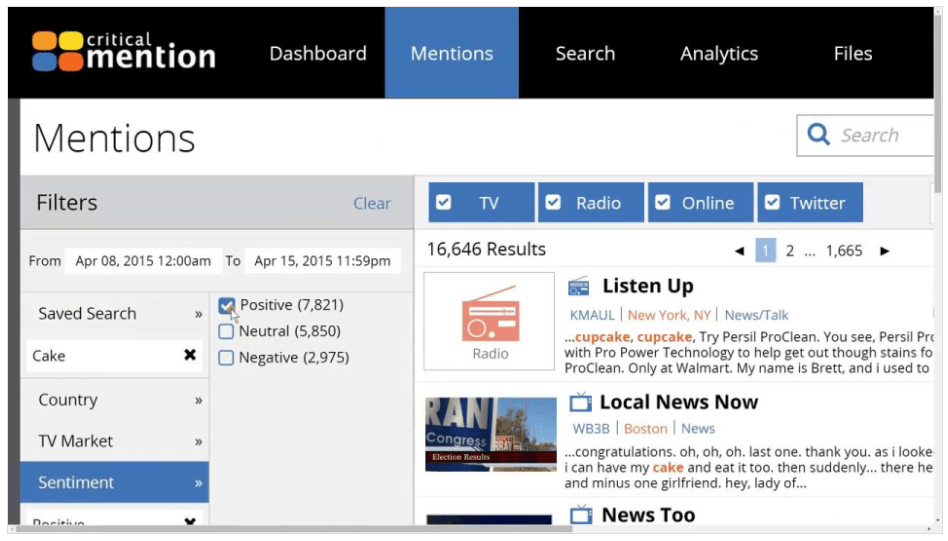
Understand the sentiment of your social media mentions with Critical Mention. By tracking your mentions in real time, you’ll be able to carefully monitor your brand and take advantage of positive mentions and identify potential problems.
Track mentions and branded terms on Facebook, YouTube and Twitter, and search for keywords related to specific topics. Marketers can also use sentiment analysis to evaluate their brand health in the marketplace and perform competitive analysis. Easily connect Critical Mention to your other tools using the API for a seamless sentiment analysis experience.
13. Awario
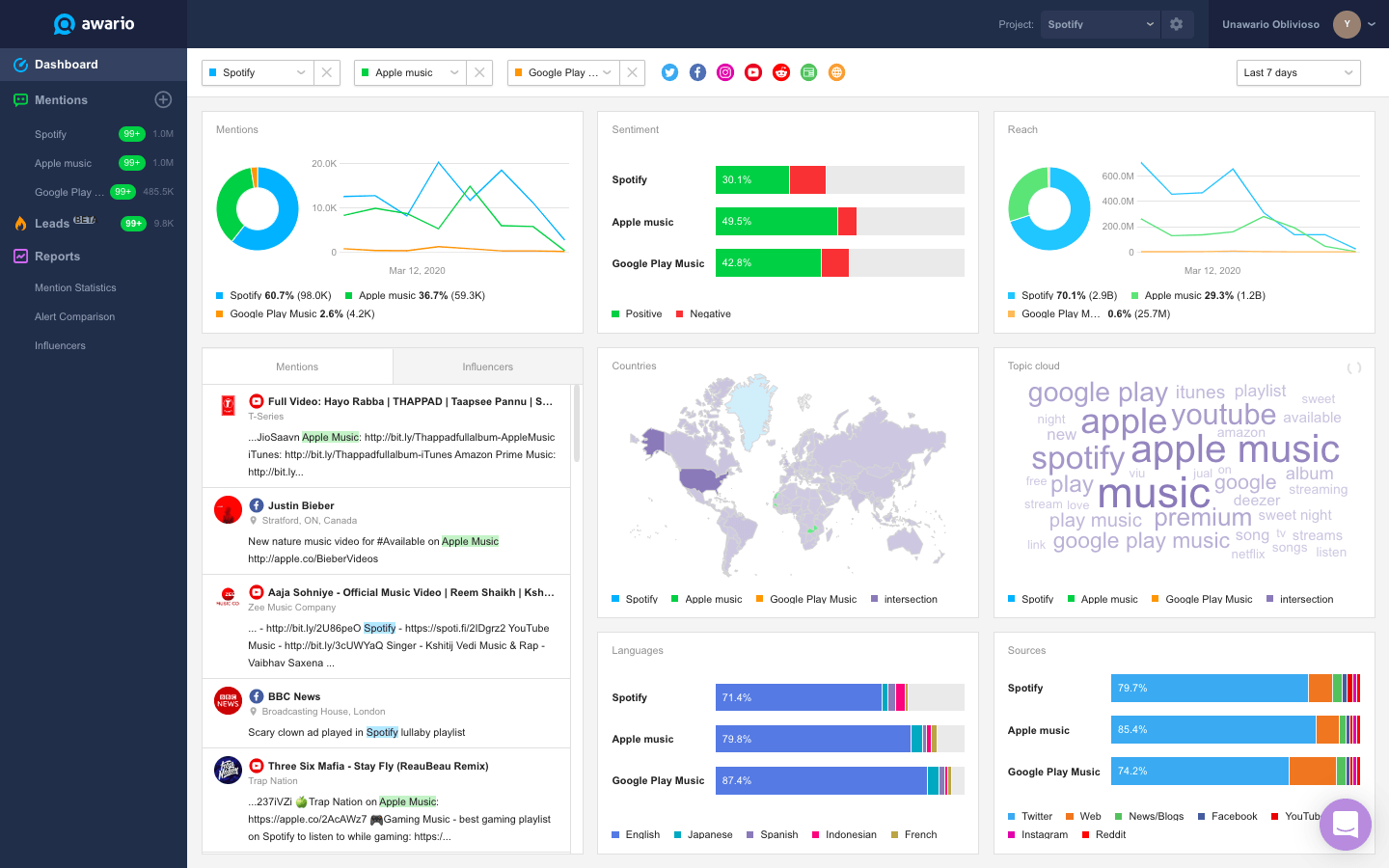
Awario is a real-time social listening tool that uses sentiment analysis to analyze tweets, posts, Reddit threads, etc. By detecting the sentiment of brand mentions in real time, you can gather timely data about your business.
What’s more, you can also monitor the sentiment around particular keywords you want to track.
Keywords may relate to your brand, product, competitors, industry, or any other topic you want to keep on top of.
Awario’s striking dashboard breaks down sentiment data by keyword, brand, topic, and more, and you can even see how your business fares against your competitors – who receives more negative feedback or mentions, for example?
14. Hootsuite Insights

Hootsuite Insights is a social listening tool that can help improve any brand strategy. It offers easy integration across all social media networks, so you have instant access to millions of real-time conversations happening online.
By analyzing the sentiment of all this data on the go, you can keep track of how your customers are talking about your brand. Set alerts to be notified of any unusual spikes in negative brand sentiment, or be the first to hear about a topic related to your industry that customers love.
When you see a conversation or complaint in need of action or response, you can simply and easily assign it to the appropriate team member. Use filters to search, like date, demographic, and geography, to cut out the noise and access the exact data you need from anywhere, when you actually need it.
15. HubsSpot's Service Hub

HubsSpot's Service Hub is a customer service software that provides an end-to-end service for customer data management. It includes a sentiment analysis feature that can classify open-ended survey responses by intent.
It integrates with your CRM to detect customers that are expressing a negative sentiment towards your company, so you can take action and reduce churn.
Final Word on Sentiment Analysis Tools
All the above tools have their pros and cons. Some provide no-code sentiment analysis tools that are easy to use and set up, but not all are customizable. On the other hand, you have tools that are customizable but they’re hard to fathom without a data science background.
MonkeyLearn provides the best of both worlds. Its point and click interface make it easy to create customized sentiment analysis tools, no-code needed, and it easily integrates with tools like Zendesk in next to no time.
Request a demo if you’d like to know more about how to do sentiment analysis with MonkeyLearn’s easy-to-use software.

Inés Roldós
October 28th, 2019






